
- About Us
- Publication
- ACTS Study
- Peace Conferences
- 2025 Peace Practitioners’ Research Conference
- 2024 Peace Practitioners’ Research Conference
- 2022 Peace Practitioners’ Research Conference
- 2020 Peace Practitioners Research Conference
- 2017 Peace Practitioners Research Conference
- 2016 Peace Practitioners Research Conference
- 2015 Peace Practitioners Research Conference
- 2014 Peace Practitioners Research Conference
- 2013 Peace Practitioners Research Conference
- 2012 Peace Practitioners Research Conference
- Contact Us
About Publications
LATEST PUBLICATIONS
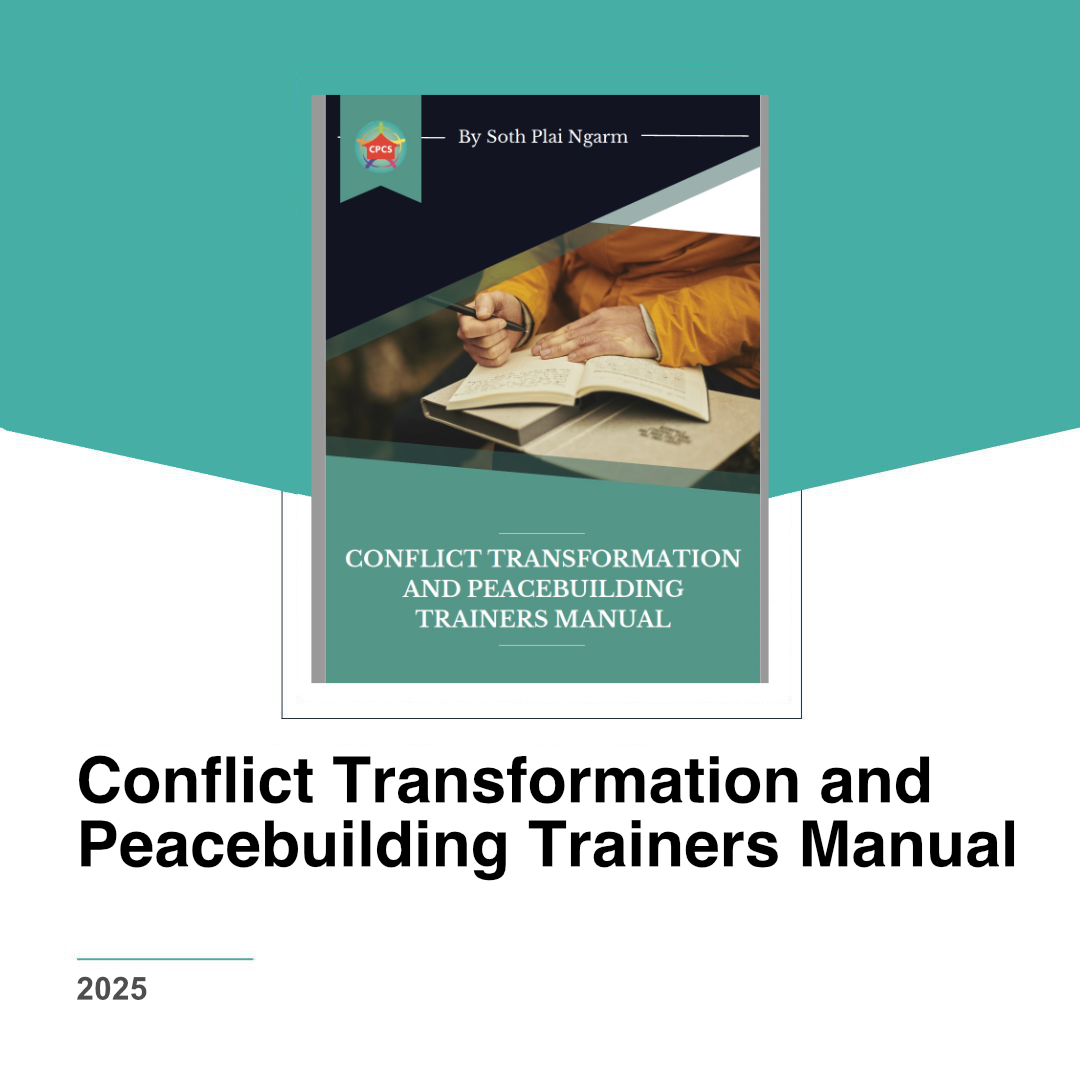
Conflict Transformation and Peacebuilding Trainers Manual
Conflict Transformation and Peacebuilding Trainers Manual
Author: Soth Plai Ngarm
Publisher: Centre for Peace and Conflict Studies
Published Date: April 2025
As a trainer in the field of conflict transformation, you are not only an educator but also a facilitator of change; conflict, when approached with the right mindset and tools, can be a catalyst for growth, healing, and long-term peace. The trainer’s role in guiding others through the principles and practices of conflict transformation is critical in shaping the future of how we address and resolve conflicts on every level, whether within communities, organizations, or even globally. This manual will show you how to think beyond traditional conflict resolution and learn to address the root causes of conflict, build trust, empower individuals, and promote systemic change that is just and sustainable.
The ‘Conflict Transformation and Peacebuilding Trainers Manual’ builds on thirty years of experience in training peace practitioners, academics, and community leaders with the foundational knowledge, methodologies, and practical approaches to effectively teach and mentor others in the art of conflict transformation. While not a replacement for training, this manual provides a comprehensive collection of guidelines, approaches, and exercises that can enhance conflict transformation and peacebuilding training for all audiences.
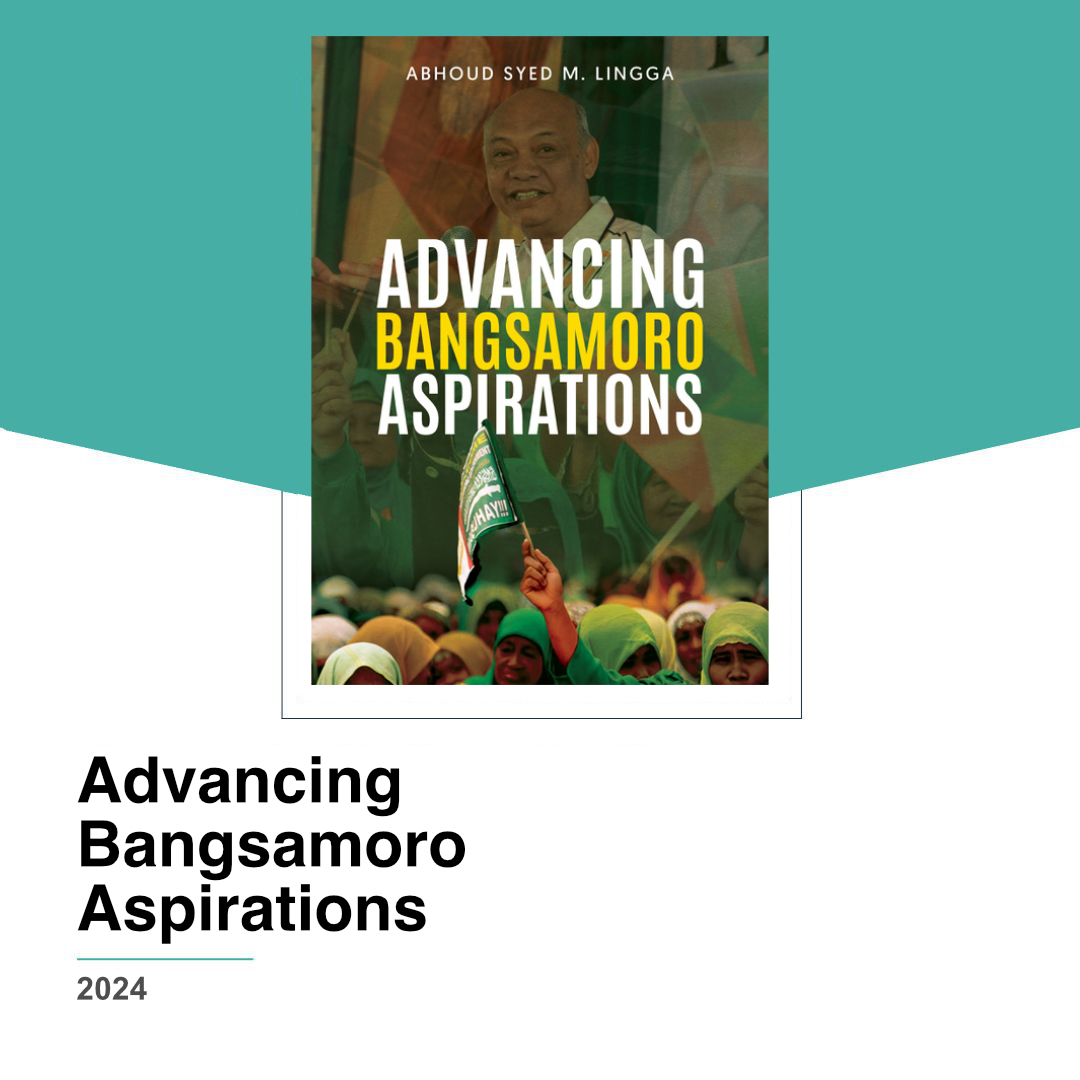
Advancing Bangsamoro Aspirations
Advancing Bangsamoro Aspirations
“Advancing Bangsamoro Aspirations” captures the essence of the Bangsamoro people’s journey towards self-determination and peace. This collection of writings by Professor Abhoud Syed M. Lingga offers a unique narrative of their struggle, exploring the legal and political frameworks involved, and examining the broader implications for both national and international peacebuilding. Published in 2024, the 10th anniversary of the Comprehensive Agreement on the Bangsamoro, the book provides valuable insights into the historical context, the challenges faced, and the ongoing efforts to build a peaceful and prosperous future for the Bangsamoro. It is an essential resource for anyone seeking to understand the complexities of the Bangsamoro peace process and the enduring pursuit of self-determination. This publication was made possible with the funding support of Misereor.
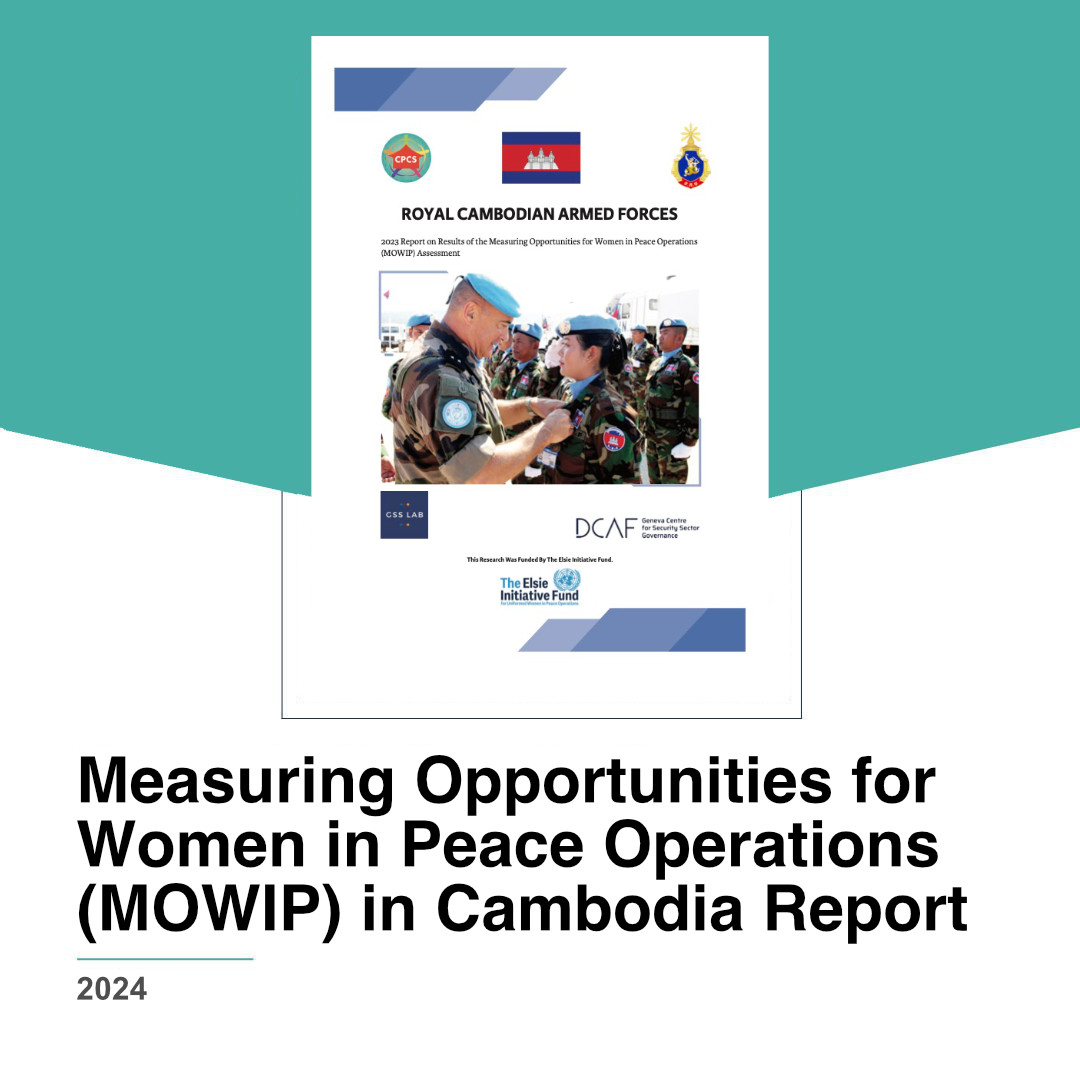
Measuring Opportunities for Women in Peace Operations (MOWIP) in Cambodia Report
Measuring Opportunities for Women in Peace Operations (MOWIP) in Cambodia Report
Published: August 2024
Country: Cambodia
Language: English and Cambodian
Cambodia demonstrates its commitment to strengthening the role of women in Peacekeeping missions, ranked 17th worldwide and second in Asia for gender parity in their contingents. Further demonstrating its commitment to Women Peace and Security, the Royal Cambodian Armed Forces (RCAF), through the National Center for Peacekeeping Force, Mine and ERW Clearance (NPMEC) partnered with CPCS and UN Women Cambodia to conduct the “Measuring Opportunities for Women in Peace Operations (MOWIP)” Barriers Assessment in 2023 – 2024.
Utilizing the MOWIP developed by Geneva Centre for Security Sector Governance (DCAF) and Cornell University, this report offers a comprehensive set of recommendations aimed at enhancing gender equality within Cambodia’s armed forces. It showcases best practices from the Royal Cambodian Armed Forces (RCAF), illustrating their exemplary performance in integrating gender considerations into peacekeeping operations.
The findings of this research will serve as a critical resource for guiding policy formulation and institutional reforms, addressing challenges to women’s full and meaningful participation in military roles. Key recommendations include fostering an enabling environment through official parental leave policies, challenging prevailing gender norms, and strengthening gender sensitivity programs within RCAF policies.
With funding support from the Elsie Initiative Fund (EIF).
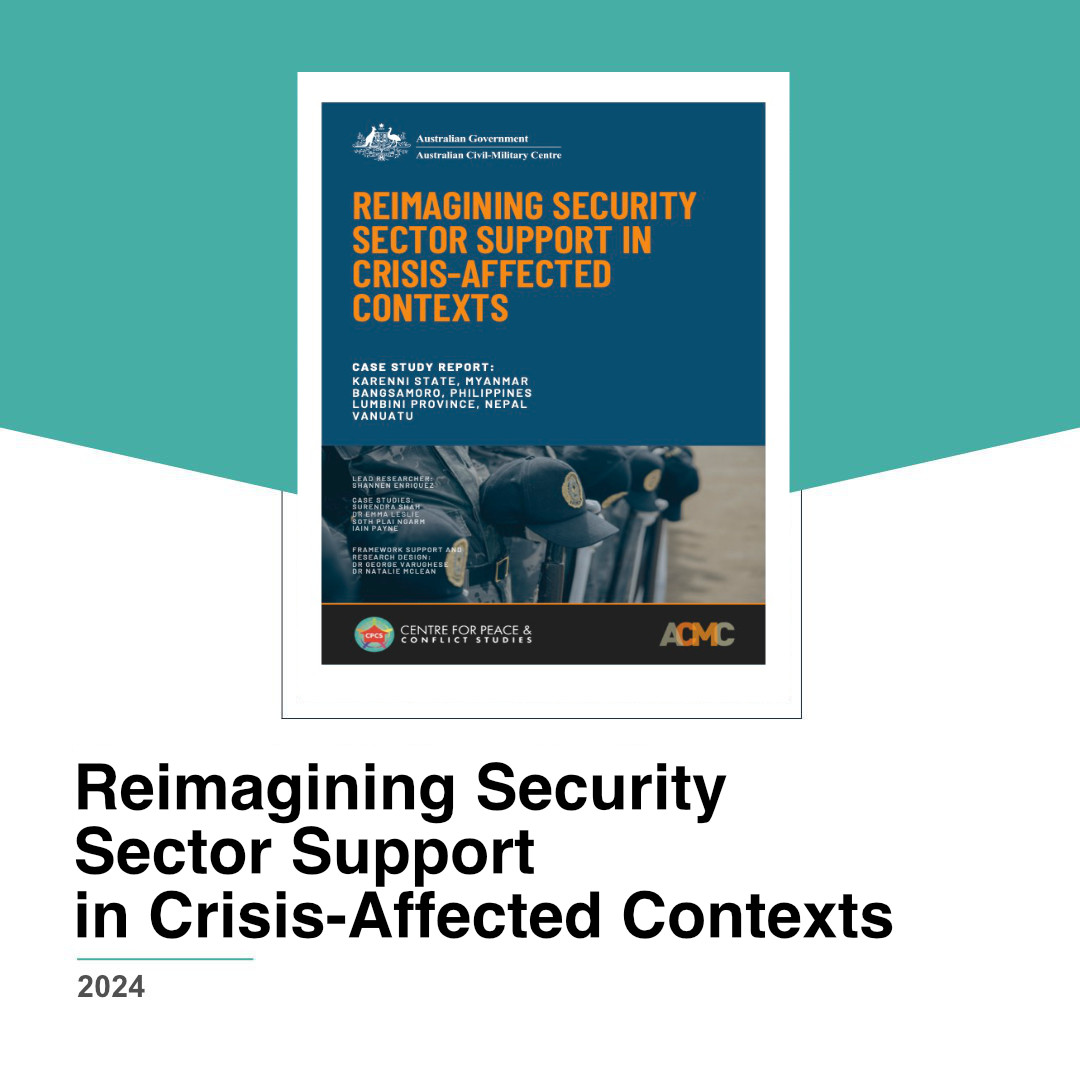
Reimagining Security Sector Support in Crisis-Affected Contexts
Reimagining Security Sector Support in Crisis-Affected Contexts
Published by: Australian Civil-Military Centre (ACMC) and Centre for Peace & Conflict Studies (CPCS)
Published: November 2024
Language: English
The report, Reimagining Security Sector Support in Crisis-Affected Contexts, produced in collaboration with the Australian Civil-Military Centre (ACMC), explores the evolving landscape of community safety, security, and policing in conflict-affected regions. It focuses on case studies from Karenni State in Myanmar, Bangsamoro in the Philippines, Lumbini Province in Nepal, and Vanuatu.
The report highlights the critical importance of community security in relation to peace and conflict, emphasising that feelings of safety are essential at all stages of conflict. By drawing on cross-context comparative learning, it offers valuable insights into effective security sector governance and community engagement. Key findings reveal that inclusive approaches to security not only address immediate safety concerns but also contribute to long-term peace and stability. It encourages community engagement and the integration of diverse perspectives in promoting sustainable peace and security.
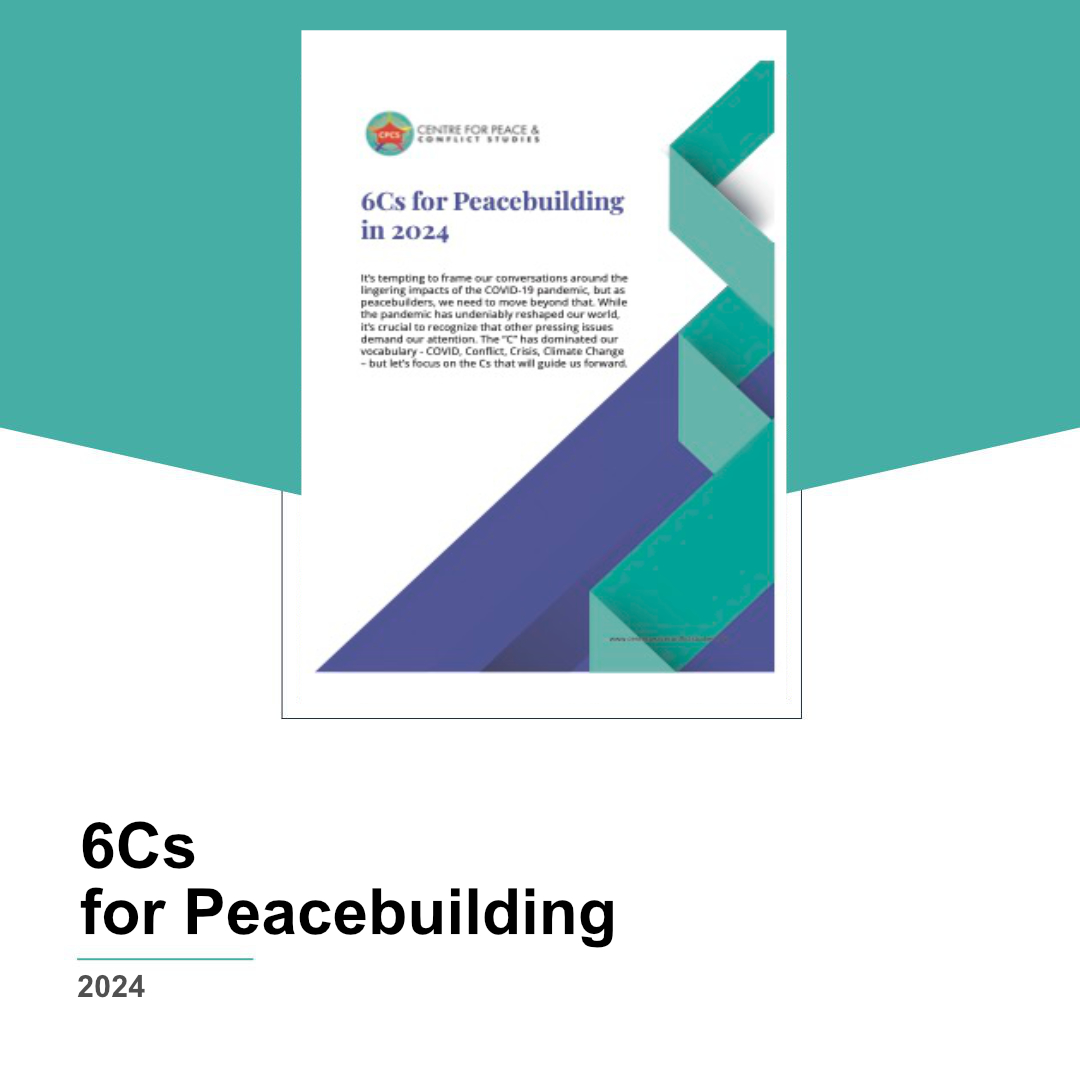
6Cs for Peacebuilding
Publisher: Centre for Peace and Conflict Studies
Date of Publishing: December 2024
Country: Cambodia
Language: English
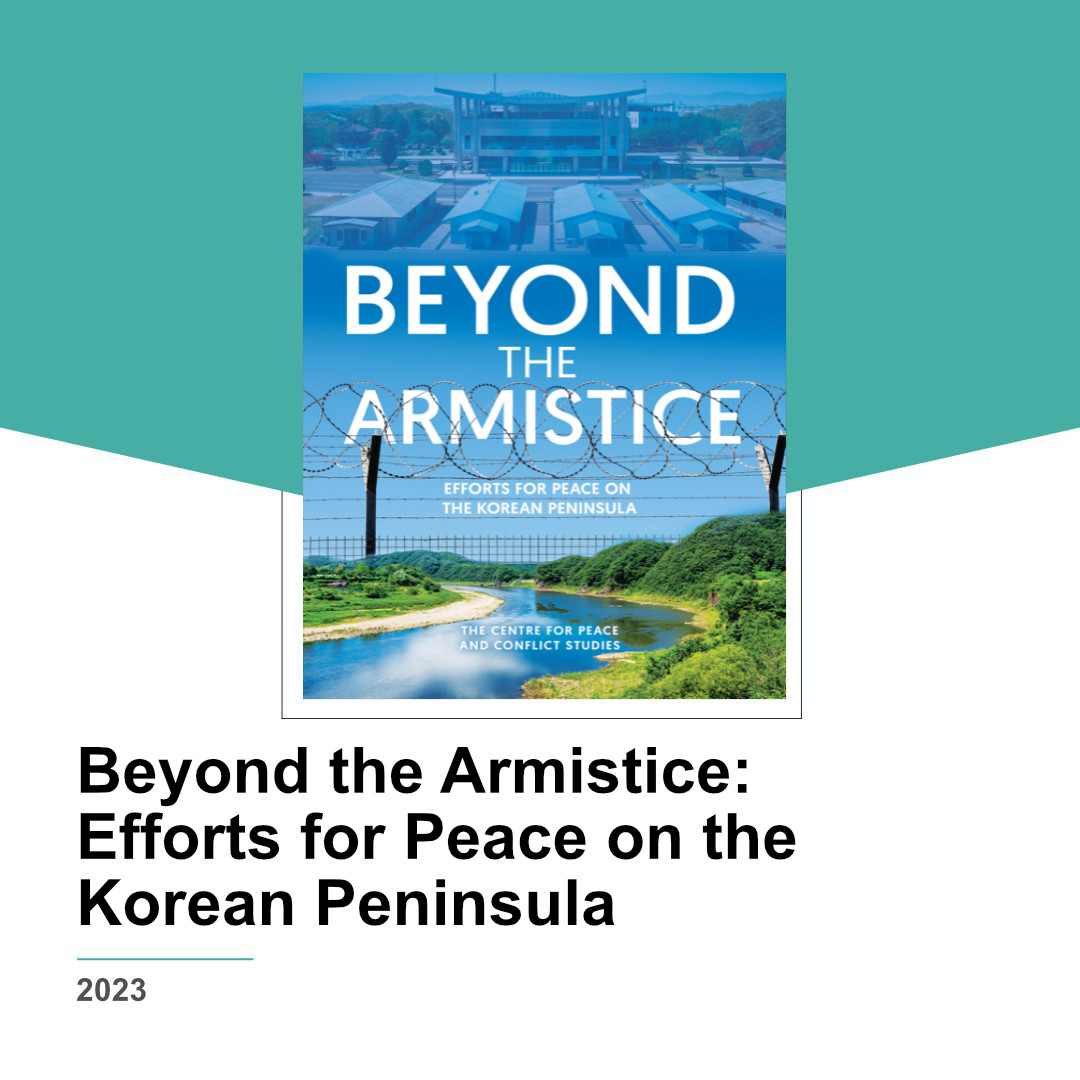
Beyond the Armistice: Efforts for Peace on the Korean Peninsula
Publisher: Centre for Peace and Conflict Studies
Date of Publishing: October 2023
Country: Cambodia
Language: English
The book “Beyond the Armistice – Efforts for Peace on the Korean Peninsula” is a compilation of interviews with individuals from different countries, sectors, and generations, who are committed to advocating peace on the Korean Peninsula. These individuals, which include civil society leaders, former policymakers, diplomats, aid experts, and educators, share their journeys in peacebuilding or efforts in engaging in dialogues. Their insights shed light on the complexities of the Korean Peninsula tension, where the unresolved Korean War has caused structural injustices for over seven decades that sustain a system of division and play a significant role in rising tensions and hostilities on the Peninsula and beyond. They urge for an immediate resumption of dialogue to reduce tension and rebuild trust, calling for a cessation of hostilities by all parties, a shift from a militarised security narrative, and a more robust, inclusive process for peace that includes the voices of people affected by the conflict. The book documents a variety of suggestions and recommendations for the policy community and civil society groups to work together towards achieving these goals.
The Centre for Peace and Conflict Studies would like to express its sincere gratitude to Misereor for their support in creating this publication, as well as to GPPAC Northeast Asia for their financial assistance in printing it. While Misereor and GPPAC provided financial backing for this project, the viewpoints and ideas expressed in the publication are solely those of the contributors and do not necessarily reflect the positions of Misereor and GPPAC.
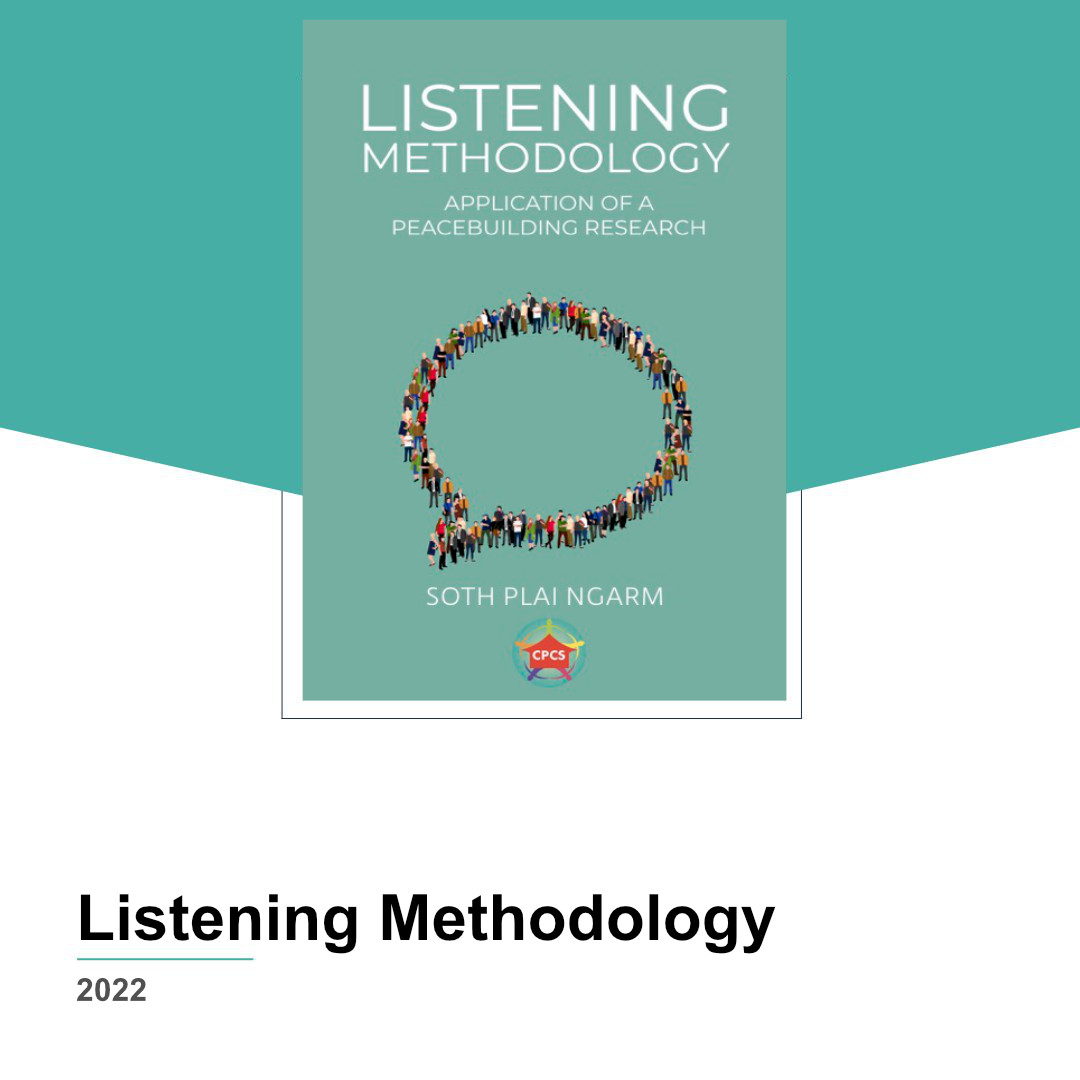
Listening Methodology: Application of a Peacebuilding Research
Author: Soth Plai Ngarm
Published by: CPCS
Published date: September 2022
The Listening Methodology is a qualitative research approach seeking to capture the feelings, thoughts, and opinions of communities living in a conflict to collect a unified voice and help amplify voices sidelined in peace processes. This manual briefly describes the listening methodology, adapted from the CDA Collaborative Learning Projects, which aims to help conflict research practitioners develop and operate a listening project effectively.
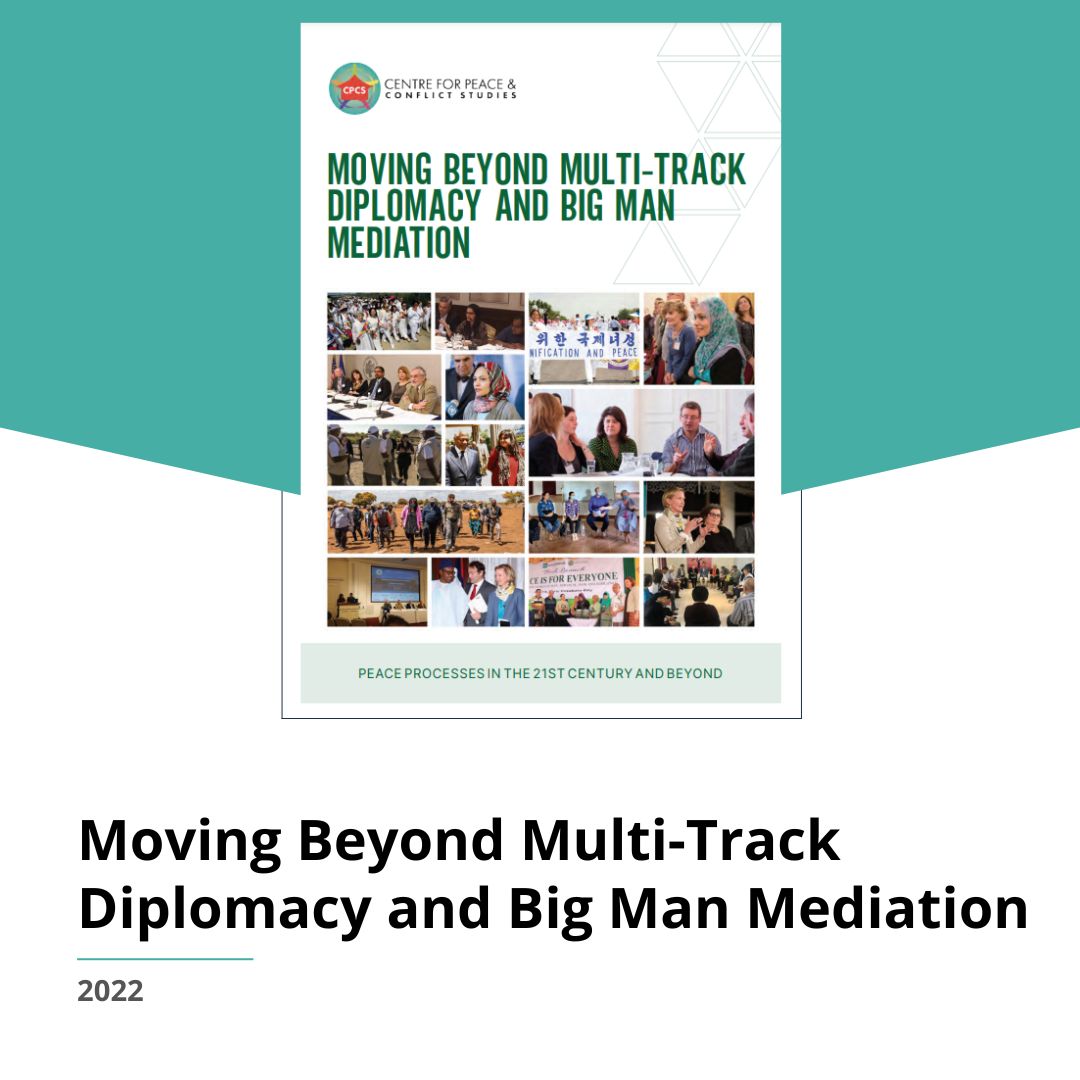
Moving Beyond Multi-Track Diplomacy and Big Man Mediation
Author: Emma Leslie, Shadia Marhaban, Meredith Preston McGhie, Ameya Kilara, Julia Roig, Christine Ahn, and Neha Sanghrajka
Published by: CPCS
Publication date: February 2022
What is mediation in the 21st century? What does it mean to be a peace leader in this time? How could organizations adapt to shocks like pandemics and ever-shifting dynamics? And why should we let go of the “big man” approach to solving conflicts?
We asked seven world-renowned peace leaders at the forefront of 21st-century mediation and peacebuilding to share their experiences and lessons learned to help answer these traditional approaches and inspire those who read it and work for peace everywhere. The writings in this book are excerpted from the 9th Asia Peace Practitioners Research Conference, hosted by the Centre for Peace and Conflict Studies in November 2020. These powerful words and engaging discussions reflect a significant shift in how mediation and peacebuilding are seen.
Videos of each chapter are available.
ABOUT OUR PUBLICATIONS
- promote creative, innovative and home-grown approaches to conflict intervention in Asia;
- make important and contextually relevant resources accessible for peace practitioners and scholars in the Asia region and beyond;identify, consolidate and share peacebuilding best practices by testing and challenging them; and
- contribute and influence the existing body of conflict transformation knowledge.
Through our publications, we seek to share the lessons learned regarding where we work, the people we work with and the way that we work.
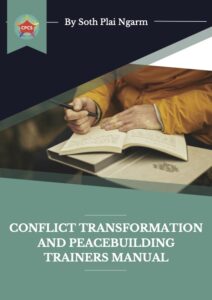 Conflict Transformation and Peacebuilding...
Conflict Transformation and Peacebuilding... 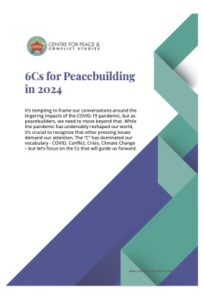 6Cs for Peacebuilding
6Cs for Peacebuilding 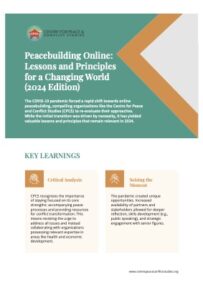 Peacebuilding Online: Lessons and...
Peacebuilding Online: Lessons and... 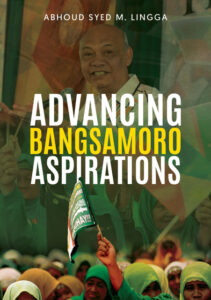 Advancing Bangsamoro Aspirations
Advancing Bangsamoro Aspirations